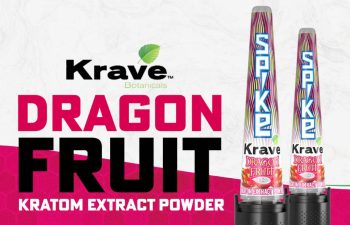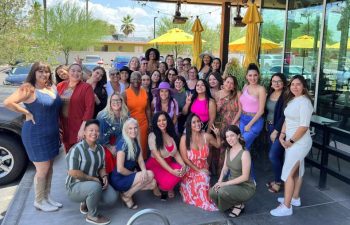When Steph Sherer founded Americans for Safe Access (ASA) in 2002, she never expected she’d still be doing this work more than 20 years later. At the time, she was a recent college graduate living in Southern California. She was also taking a high dose of anti-inflammatories every day for a painful chronic injury. And despite her young age, she was experiencing early onset kidney failure because of it.
Although medical marijuana was technically legal in California at the time, the feds were fighting it hard, with only 11 dispensaries in the whole country. Meanwhile, Steph was running out of tenable options. When her doctor closed the office door and quietly suggested she try pot, it was a much more attractive option than a kidney transplant.

So, Steph became a medical cannabis patient. And with her background in politics, she quickly saw the need for political organizing in the medical legalization space. “I had never worked on an issue with 80% support nationwide,” she says. “As a cocky 25-year-old, I thought [federal medical legalization] would take a couple of years.”
After relocating to the Bay Area, however, she quickly realized it would be much more difficult. The “War on Drugs” was raging. Medical marijuana providers were being raided by the federal government and facing lengthy jail time. “People were risking a lot,” she says. “These people are committing civil disobediences to provide me medicine.”
This realization led Steph to do what she does best: she organized a movement. Pulling from the tools she cultivated as an organizer, Steph started leading “know your rights” training sessions for dispensaries and growers so they would be prepared in case of a raid. Since raids are just “glorified search warrants,” Steph wanted to make sure people didn’t give up information they didn’t legally have to. “I did thousands of those trainings,” says Steph. “Not exaggerating.” She also set up phone trees and helped groups organize internally.
Concurrently, ASA was meeting with healthcare stakeholders to drum up support both within the state and nationwide and organizing within nearly 100 local communities to change the pervasive—and discriminatory—“War on Drugs” rhetoric. Steph reached out to city mayors and local press where raids were happening, getting cities to protest if there was another raid.
When a raid subsequently happened in Santa Cruz, California, ASA got the community ready. “Patients sat in the road and blocked them in,” Steph says. “We were also able to negotiate getting the owners out of jail.” This local resistance helped reframe the legalization issue on a national scale, leading to actions organized in 97 other cities. And when state agencies in California weren’t implementing newly passed medical marijuana legislation, ASA sued every single one of them until they did.

As Steph’s understanding of the problem evolved, so did her tactics. Since there were huge barriers to having a national medical cannabis program, ASA also created triage programs at the state level to get patients the access they urgently needed. That’s what Steph and ASA have been doing for 23 years.
“What’s on the other side of this fight is redefining medicine in this country,” Steph says. “A lot of the health issues crippling our society are these scary chronic conditions that we don’t understand fully. Pharmaceuticals aren’t working, but cannabis can help regulate multiple systems at once, which is exactly what’s needed to treat these complex diseases.”
Despite all the bumps in the road, Steph stays rooted in the hope and tenacity of the patients she’s worked with. “I’ve met the most amazing people through ASA,” she says. “This space we’re in was built on the backs of medical patients. I know more than 50 people who spent the last weeks of their lives in a courtroom or statehouse testifying. It’s pretty amazing. It also makes it very hard to settle for ‘privileged Americans for safe access,’ which is what we have right now.”
Politics in America is not a spectator sport. If you want a different future for cannabis, you’re going to have to get involved.

When asked how people can support ASA’s work and get involved, Steph has a lot of ideas. The bottom line? “Politics in America is not a spectator sport,” she says. “If you want a different future for cannabis, you’re going to have to get involved.”
One way to get involved is by contacting your representatives and taking action on ASA’s website. As long as you know your zip code, you can reach out to your senators and congresspeople in less than two minutes and urge them to support federal legalization. “If you’re not talking to [your representatives], they think everything’s fine,” she says.
She also urges headshops to make sure they’re including patients as a key stakeholder in their work. “People are pretty surprised to hear about the experience of medical patients,” Steph says. “Retailers need to band together. The period of time where you could look the other way is closing.”
To help educate interested parties, Steph hosts a lunch and learn webinar series at noon every Wednesday. She also continues to work with growers and dispensaries on “know your rights” and raid trainings. “There’s an organizing moment here,” she says. “I just want to be helpful.”
“We’re making this up as we go,” she says. “Sitting on the sidelines and getting frustrated has never worked for any type of social change. If you don’t like the way things are headed, use your voice and put a different vision out there. None of this just happened. We sat down and made it up, and we’re making it happen.”
Connect with Steph on LinkedIn or check out the ASA Facebook account today to learn more about how you can help!
Do you know a powerhouse woman making waves in the cannabis industry? Whether she’s leading, innovating, advocating, or inspiring, we want to hear her story! Our Women in Cannabis spotlight celebrates the trailblazers, changemakers, and unsung heroes shaping the future of the industry. Nominate someone who deserves the recognition—because their work deserves to be seen! Submit your nomination now, click here!

















